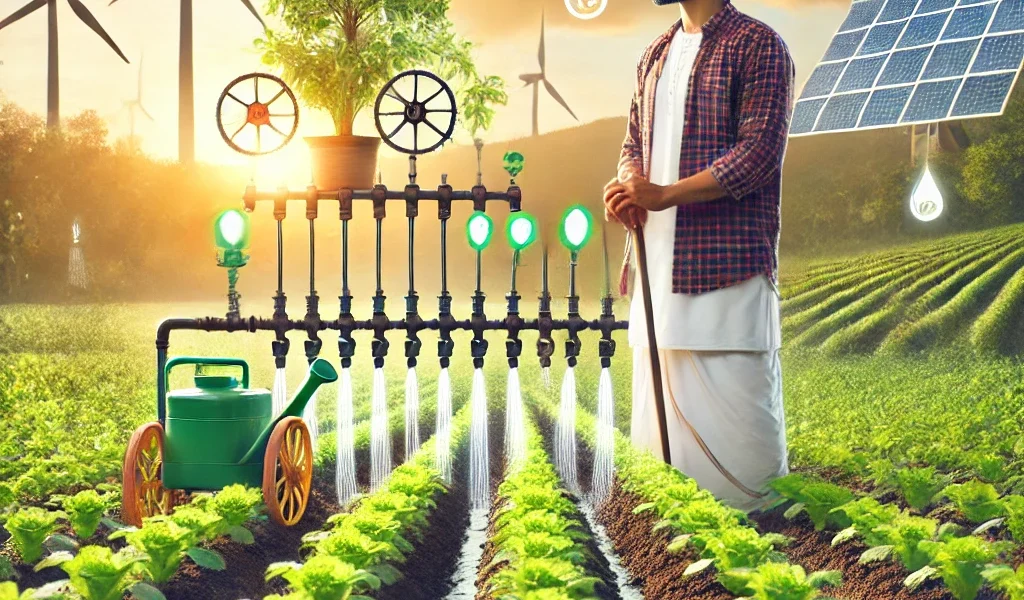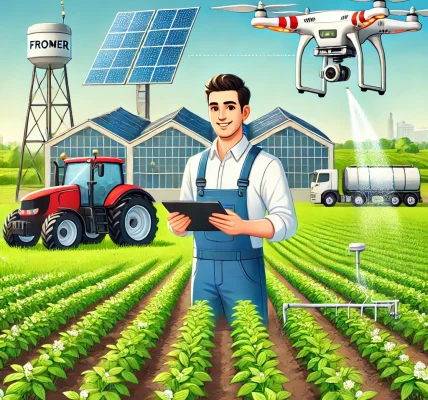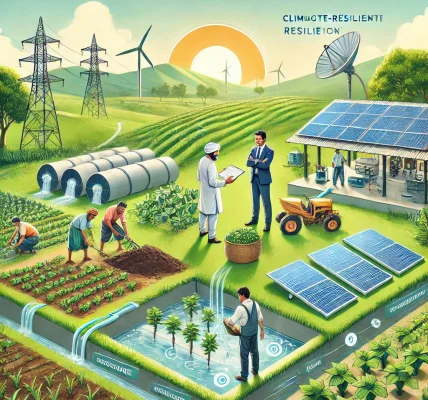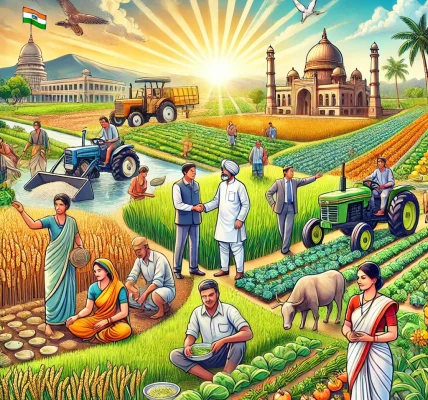Introduction
Agriculture is the backbone of many economies, providing food security and employment to millions. However, traditional farming methods often lead to environmental degradation, soil depletion, and excessive water usage. To combat these issues, governments worldwide, including India, are promoting sustainable and eco-friendly farming practices through various subsidy schemes and incentives.
This blog explores the key government schemes supporting sustainable agriculture, their benefits, and how farmers can apply for them independently to maximize their benefits.
1. Importance of Sustainable and Eco-friendly Farming
- Soil Conservation: Sustainable farming improves soil health and reduces erosion.
- Water Efficiency: Promotes the use of drip irrigation and rainwater harvesting.
- Reduced Chemical Use: Encourages organic farming to minimize synthetic fertilizers and pesticides.
- Climate Resilience: Helps farmers adapt to changing weather conditions through agroforestry and mixed cropping.
- Long-term Profitability: Lower input costs and improved yields ensure better earnings for farmers.
2. Key Government Schemes Promoting Sustainable Farming
a) Paramparagat Krishi Vikas Yojana (PKVY) – Promoting Organic Farming
- Aims to encourage organic farming practices.
- Provides financial assistance for organic inputs like bio-fertilizers and composting units.
- Farmers receive up to ₹50,000 per hectare for three years.
- Supports Organic Certification to increase market value.
b) National Mission for Sustainable Agriculture (NMSA)
- Focuses on efficient water use, soil health management, and climate adaptation.
- Encourages rainwater harvesting, micro-irrigation, and soil health improvement.
- Provides financial aid for adopting climate-resilient farming technologies.
c) Pradhan Mantri Krishi Sinchayee Yojana (PMKSY) – Efficient Water Use
- Promotes water conservation and micro-irrigation (drip and sprinkler systems).
- Farmers receive subsidies up to 55% (general) and 75% (SC/ST farmers).
- Helps in rainwater harvesting and groundwater recharge.
d) Rashtriya Krishi Vikas Yojana (RKVY) – Promoting Sustainable Growth
- Supports innovative agricultural practices and sustainability projects.
- Encourages crop diversification and organic farming.
- Provides financial grants for eco-friendly farming solutions.
e) State-Specific Sustainable Farming Schemes
- Andhra Pradesh Zero Budget Natural Farming (ZBNF): Encourages natural farming without chemical fertilizers.
- Maharashtra’s Organic Farming Policy: Offers financial support for organic certification.
- Karnataka’s Organic Farming Mission: Provides assistance for setting up organic input production units.
3. How to Apply for These Schemes Without an Agent?
Farmers can apply for these schemes directly through government portals, avoiding unnecessary agent fees.
Step 1: Check Eligibility
- Must be engaged in agriculture or allied activities.
- Should have a valid Aadhaar card and bank account.
- Own or lease farmland suitable for sustainable farming.
Step 2: Gather Required Documents
- Land ownership certificate
- Aadhaar Card
- Bank passbook copy
- Soil health test report (if applicable)
- Application form for the respective scheme
Step 3: Apply Online
- Visit official government portals such as:
- https://agricoop.nic.in (Ministry of Agriculture)
- State government agricultural department websites
- Register using an Aadhaar-linked mobile number.
- Fill in personal and farm details.
- Upload scanned copies of required documents.
- Submit the application and track the status online.
Step 4: Offline Application Process
- Visit the nearest agriculture office or Krishi Vigyan Kendra.
- Collect and fill out the application form.
- Submit the form along with necessary documents.
- Keep a copy of the acknowledgment receipt for future reference.
4. Benefits of Government Sustainable Farming Schemes
- Financial Support: Reduces the cost of adopting eco-friendly methods.
- Higher Crop Yields: Sustainable methods improve soil fertility over time.
- Market Benefits: Organic produce fetches premium prices.
- Environmental Protection: Reduces pollution and conserves biodiversity.
- Resilience to Climate Change: Helps farmers deal with unpredictable weather.
5. Legal Precautions to Avoid Fraud
- Apply only through official government websites to avoid scams.
- Do not pay any unauthorized fees to agents claiming to fast-track applications.
- Verify all subsidy amounts and approvals before making investments.
- Keep copies of submitted applications and approval receipts.
Conclusion
Sustainable farming is the future of agriculture, ensuring food security while protecting the environment. Government schemes such as PKVY, NMSA, and PMKSY provide financial aid and technical support to farmers adopting eco-friendly practices.
By applying directly through government portals, farmers can maximize subsidies without agent fees, ensuring long-term sustainability and profitability.
Are you ready to switch to sustainable farming? Explore government schemes today and take a step toward an eco-friendly future! 🌱🌍




